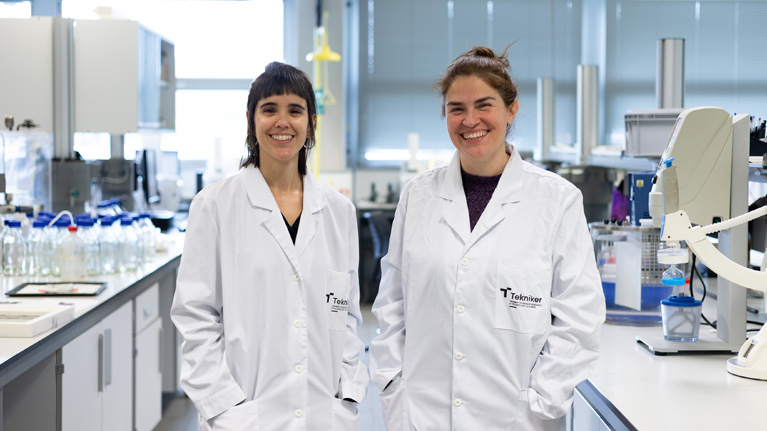The future of advanced materials: Innovation and sustainability in the industry
The evolution of advanced materials is redefining the industry. Additives, coatings, resins and ink that are more sustainable and functional ink have made it possible to optimise processes, reduce environmental impacts and improve competitiveness. Innovations in this area will shape the future of key sectors such as, among others, the automotive business, health or electronics.

Developing new materials is fundamental for many industrial sectors to evolve. The automotive business, aeronautics, consumer electronics, infrastructures or health are some of the sectors where improvements related to additives, coatings, resin, paint and ink will optimise processes, increase efficiency and reduce environmental impacts. As there is an increasingly growing demand for solutions that are more sustainable and functional, it is clear that any research focused on this area will play a key role in terms of enhancing a company’s competitiveness.
One of the most promising advances reported to date is associated with functional and smart additives that have made it possible to improve properties such as corrosion resistance, self-repair capabilities and anti-microbial protection that extend service life, reduce maintenance requirements and cut-back operating costs. The incorporation of solutions based on renewable resources together with the optimisation of how raw materials are used will guarantee the long-term feasibility of these developments.
As regards organic and inorganic coatings, priority is currently being given to water and bio-based formulations that, compared to traditional alternatives, minimise toxicity and environmental impacts. Thanks to technologies such as sol-gel it is now possible to produce surfaces featuring advanced characteristics such as liquid repellency or abrasion resistance to deliver value in sectors where durability and performance are determining factors.
Another of the current challenges is related to the recyclability of resins. The impossibility of reutilising many of these materials has brought about a waste management problem in several industries. Research work related to intrinsically recyclable resins featuring new functionalities such as self-repair or reprocessing, however, has made it possible to advance towards production models that are more circular and efficient, a development that has revolutionised sectors where advanced composites, adhesives and coatings are manufactured.
Digitisation is also transforming the way materials are designed and used. The incorporation of sensors and functional ink to surfaces opens up new possibilities for the manufacturing industry ranging from smart containers that monitor their contents to structures designed to respond to external stimuli. The onset of these technologies is redefining the functionality of traditional materials.
From a company perspective, sustainability and innovation are no longer optional but rather determining factors to further competitiveness and growth. Although the transition towards more ecological solutions is associated with a number of challenges in terms of investments and regulations, the evolution that advanced materials are currently undergoing offers a strategic opportunity to improve operating efficiency, to stand out in the market and meet increasingly demanding environmental requirements.
The future of the industry will depend, to a large extent, on how it will be able to incorporate materials that perform better, have longer life cycles and produce less environmental impacts. All the research carried out in this area is not only focused on meeting certain technical needs but should also serve as a transformative driving force to head towards an industry that is more sustainable, resilient and innovative.
Miren Blanco and Amaia Martínez Goitandia, surface chemistry and nanotechnology researchers at Tekniker
